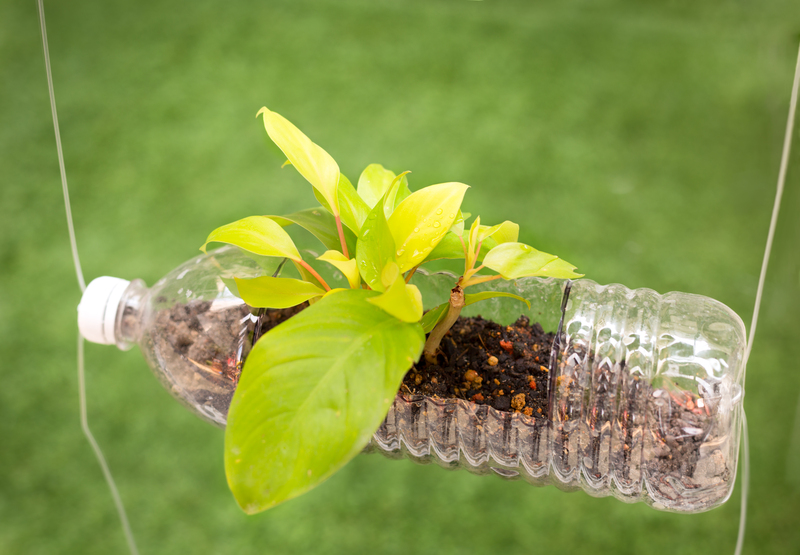How to Declutter and Save When Managing Bulky Waste Items
Dealing with bulky waste items can quickly become a challenging and expensive task if not approached strategically. Whether you're planning a home cleanout, moving to a new residence, or simply want to reclaim your space, managing large and unwanted items doesn't have to be overwhelming or costly. This comprehensive guide will show you how to declutter efficiently and save money when handling bulky waste, with actionable tips, eco-friendly ideas, and cost-saving strategies.

Understanding Bulky Waste Items
Before diving into how to deal with bulky refuse, it's essential to understand what qualifies as bulky waste. Bulky waste refers to items too large to be disposed of with regular household garbage. Common examples include:
- Old furniture (couches, dressers, mattresses)
- Large appliances (refrigerators, washers, dryers)
- Carpets and rugs
- Yard equipment (lawnmowers, grills)
- Electronics (TVs, computers)
- Renovation debris (doors, bathtubs)
These oversized items require special handling, which often incurs extra costs. But with the strategies below, you can significantly reduce expenses while creating a cleaner, more organized home.
Step-by-Step Guide to Decluttering Bulky Waste
1. Create a Decluttering Plan
An organized approach is key. Walk through your home, garage, attic, and yard to identify items you no longer need or use. Make a list and group bulky items by type--furniture, appliances, electronics, etc. This makes sorting and disposal easier later on.
- Prioritize Safety: Some large items, especially electronics and appliances, may pose safety risks. Always secure cords, remove doors from old fridges/freezers, and ensure sharp edges are covered.
- Set Realistic Goals: Don't try to tackle the entire house at once. Focus on one room or area per day or week.
2. Evaluate Condition for Donation or Sale
Not all bulky waste is truly waste. Items in good condition can either be donated or sold, which not only declutters your space but also helps someone else. Consider the following steps:
- Assess Reusability: Gently used furniture, working appliances, and clean mattresses may be accepted by local charities or shelters.
- Host a Garage Sale: A classic yet effective way to rehome unwanted items and earn some extra cash.
- Use Online Marketplaces: Platforms like Facebook Marketplace, Craigslist, or community swap apps are excellent places for offering bulky goods for free or for sale.
Tip: Sometimes, simply putting a "free" sign on big items at the curb can result in someone picking it up--check local regulations first.
3. Explore Recycling Options
Before turning to landfill disposal, consider recycling. Bulky waste recycling is becoming more accessible. Here's how you can recycle various large items:
- Appliances: Many municipalities have "white goods" recycling programs that accept refrigerators, stoves, washers, and dryers.
- Electronics: E-waste collection events and retailers (such as Best Buy) often accept old TVs and computers for responsible recycling.
- Furniture: Some wood, metal, and plastic furniture can be broken down and processed by recycling centers--call your local facility to verify.
Pro Tip: If you have a truckload, some scrap yards pay for metal from old appliances!
4. Utilize Municipal Bulk Trash Pickup
Check if your community offers a scheduled bulk waste pickup service. Most cities have at least one or two collection days a year where residents can set out large trash items for removal.
- Plan Ahead: Mark collection dates on your calendar and prep your items accordingly.
- Follow Rules: Municipalities often restrict the number, type, and size of items they'll accept--always check local guidelines.
- Separate Materials: Some programs distinguish between appliance, furniture, yard waste, and electronics, requiring different pickup days.
Using these free or low-cost programs can dramatically reduce bulky waste disposal costs.
5. Share or Swap Items
You might be surprised at how many friends, neighbors, or community members could benefit from your unwanted goods. Try the following:
- Neighborhood Apps: Use tools like Nextdoor or Buy Nothing Groups to offer up large items.
- Community Boards: Post flyers at local coffee shops, grocery stores, or schools.
- Freecycle: List usable bulky waste for pickup by others who need it.
By sharing, you encourage reuse and avoid waste collection fees.
6. Rent or Share a Dumpster or Truck
When you absolutely need to dispose of a significant number of bulky refuse items, consider partnering with neighbors or friends to split the cost of a roll-off dumpster or moving truck. Dumpsters are ideal for large-scale cleanouts and renovations.
- Compare Rates: Get quotes from several local dumpster rental companies.
- Share Expenses: Dividing costs can save everyone money.
Note: Always clarify what types of large waste items are permitted in the dumpster before booking.
7. DIY Hauling to Disposal Sites
If you have access to a pickup or van, hauling items yourself can be more affordable than using professional bulky waste disposal services. Research local drop-off centers or landfill policies:
- Weigh-In Costs: Some facilities charge by vehicle type or item weight--call ahead to avoid surprises.
- Donation and Recycling Centers: Drop off usable goods first before heading to the landfill.
Additional Tips for Saving Money on Bulky Waste Removal
Handling large garbage items doesn't always require spending a fortune. Below are clever, money-saving techniques to help you manage your next decluttering project.
Maximize Tax Deductions
If you donate furniture, appliances, or other goods to qualified charities, you may be eligible for a tax deduction based on their fair market value. Keep itemized receipts and photos for your records. Consult a tax adviser to maximize potential benefits.
Choose Eco-Friendly Options
Many bulky items contain recyclable materials. Recycling not only helps the environment, but some recycling centers even pay for certain types of metal, electronics, or reusable components.
- Deconstruct items before disposal to separate recyclable materials.
- Research local upcycling and creative reuse groups who may accept unusual items.
Avoid Illegal Dumping
It can be tempting to dump large items in unauthorized places to save money, but this is illegal and can result in significant fines. Always follow local disposal regulations and utilize community resources.
Negotiate with Disposal Services
If you must hire a junk removal company, request estimates from several providers and see if they can price-match or offer discounts. Scheduling during "off-peak" seasons or combining multiple items at once can sometimes lower your total cost.
Creative Ideas for Repurposing Bulky Waste
Not everything needs to be thrown away. Repurposing or upcycling can give bulky items a second life. Here are a few ideas:
- Turn old doors or headboards into tables or benches.
- Refinish and paint worn furniture for a refreshed look.
- Convert broken appliances into planters, storage bins, or workshop equipment.
- Use reclaimed wood from furniture for DIY projects.
*Repurposing* bulky items saves money on new purchases and reduces landfill waste.

FAQ: Managing Bulky Waste Items Responsibly
What is considered a bulky waste item?
Any item that cannot fit into a standard garbage bin, such as sofas, mattresses, appliances, and some electronics, is classified as bulky waste.
Can I leave large waste items on the curb?
Only if your municipality allows it and within scheduled collection times. Otherwise, unauthorized dumping can lead to fines.
What should I do with unusable, non-recyclable items?
If you've exhausted donation and recycling options, utilize a landfill or professional large item disposal service. Make sure items are safely prepared for transport.
How can I minimize bulky waste in the future?
- Buy quality over quantity when purchasing furniture or appliances.
- Maintain and repair items, giving them a longer lifespan.
- Rent or borrow infrequently used equipment instead of purchasing.
- Regularly declutter, preventing buildup of unusable large items.
Conclusion: Declutter, Save, and Stay Sustainable
Managing bulky waste items doesn't have to drain your wallet or fill up landfills. With a little planning and a creative mindset, you can declutter your home, avoid unnecessary expenses, and even help others in the process. By donating, recycling, or responsibly disposing of large items, your living spaces will not only feel fresher but also contribute to a healthier environment and community.
Remember, getting rid of large junk items is just the first step--adopting smart purchasing, maintenance, and reuse habits ensures your home stays clutter-free and budget-friendly for years to come.
Ready to tackle your next purge? Save money and help the planet by following these practical tips every time you're faced with bulky waste disposal!
